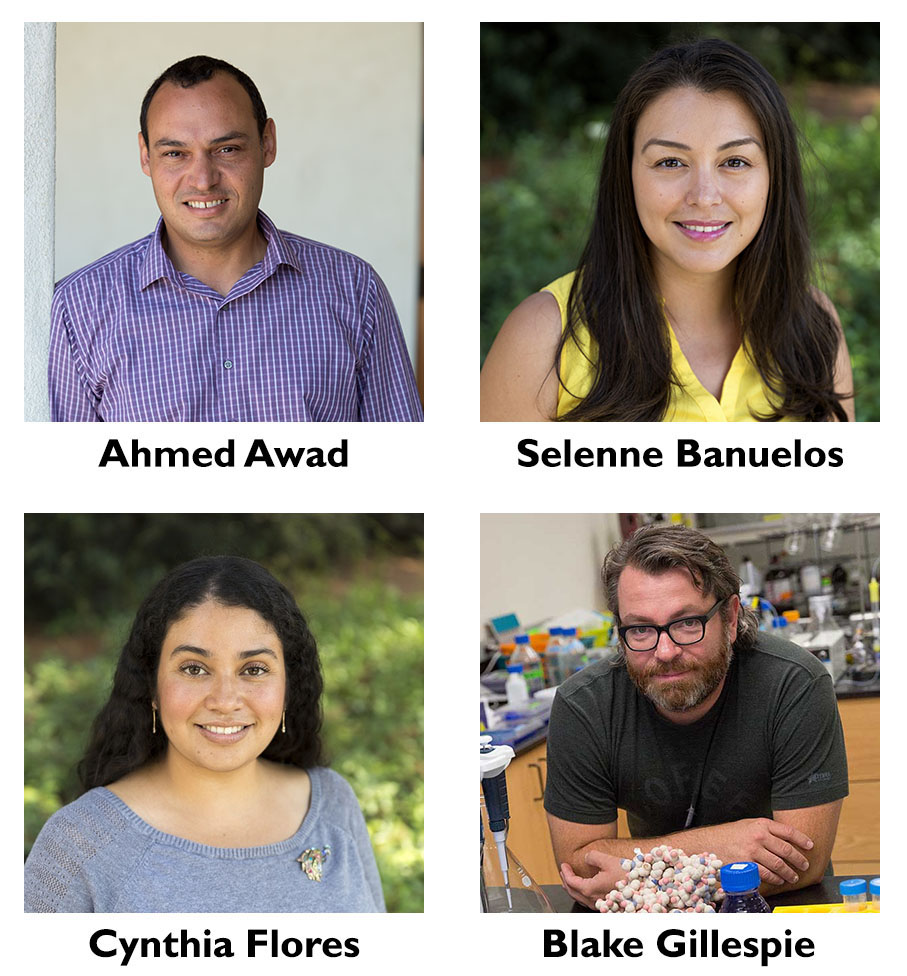 Oct. 16, 2020 — The National Science Foundation (NSF) has awarded CSU Channel Islands (CSUCI) two grants that will support the University’s commitment to diversity in their expanding Science, Technology, Engineering and Mathematics (STEM) faculty.
Oct. 16, 2020 — The National Science Foundation (NSF) has awarded CSU Channel Islands (CSUCI) two grants that will support the University’s commitment to diversity in their expanding Science, Technology, Engineering and Mathematics (STEM) faculty.
CSU Channel Islands (CSUCI) President Erika D. Beck, Ph.D. is the lead on a $299,695 grant from the NSF to lessen the systemic factors that create inequities in the academic profession for STEM faculty. The funds are from the NSF ADVANCE Catalyst program, which is designed to support an institutional self-assessment.
In other words, the grant is aimed at studying the hiring and retention process and challenging inequities that create barriers for a diverse STEM faculty.
“Diversity enriches the academic experience for all students, and for the community when our students enter the work force as graduates,” Beck said. “We are fortunate here at CSUCI to have a rich variety of students with different backgrounds and experiences, and we want our faculty to reflect that same wealth of perspectives. Diversity in our faculty and student body gives more depth to our scientific research, more color to our arts and more justice to our society.”
The grant is titled “Discovering Enabling Systemic Advancement and Faculty Inclusion Across Ranks (DESAFIAR).”
“In Spanish, the word desafiar means ‘to challenge,’” said Associate Professor of Mathematics Selenne Bañuelos, Ph.D., a co-principal investigator on the grant with Associate Professor of Chemistry Ahmed Awad, Ph.D. “With this grant, we will challenge the institution to find and break down systemic barriers that might exist for Historically Underrepresented Groups (HUGS) in the sciences, women, persons with disabilities, and particularly people belonging to multiple groups.”
The grant program is designed to 1) collect data to see what sort of inequities exist in terms of hiring and keeping faculty members; 2) develop a solid plan to address those inequities; and 3) put those plans into effect.
“This grant gives us an opportunity to do a deep dive into policies and practices on campus that may be hindering diversity in STEM faculty in the academic workplace,” Bañuelos said.
“The ultimate goal is to adjust the system to promote equity for STEM faculty. Equity goes beyond giving a diverse selection of candidates a chance at tenure-track STEM faculty positions; It’s also about supporting them once they are hired.”
Bañuelos pointed out that the nation’s population is roughly 50% male and 50% female. Yet, national statistics indicate that the number of women in STEM faculty still consistently falls below 30%.
“Then, looking at the Latina/o community in California, the representation in STEM tenure track faculty is so low, we have to wonder where we’re going to be in 20 to 30 years?” Bañuelos said. “California has the largest Latina/o population in the country.”
The grant proposal went on to point out that CSUCI can build on its past and current efforts to enhance inclusivity and faculty diversity.
“CSUCI is in a wonderful position to take advantage of the resources and guidance offered by the NSF ADVANCE Catalyst program,” reads part of the grant proposal. “Our rate of faculty hiring is expected to increase dramatically corresponding to plans to increase the student body size by 60% in the next several years. We have an unusual opportunity to dramatically change the overall composition of our faculty.”
The NSF has also awarded the University a $28,933 grant aimed at increasing the number of Latina/o STEM professors at the university level. This is the final installment of the $2 million, three-year grant called “Collaborative Research: Alliances for Graduate Education and the Professoriate (AGEP) Transformation Alliance: A California Hispanic Serving Institution (HSI) Alliance for Pedagogy as Preparation for the Professoriate.”
The grant went to CSUCI and three other Hispanic Serving Institutions: UC Santa Barbara (UCSB), UC Merced (UCM) and CSU Fresno (CSUF). Each of the UCs in the project is paired with a CSU – CSUCI works with UCSB, and UC Merced works with CSU Fresno.
“Different AGEP alliances across the country do things differently. What the NSF does is to fund institutions across the nation to develop their own programs,” explained Professor of Chemistry Blake Gillespie, Ph.D., who is responsible for the grant along with Associate Professor of Mathematics Cynthia Flores, Ph.D.; and Associate Professor of Chemistry Ahmed Awad, Ph.D.
“We are trying to create a model system that other two-tier university systems across the nation can emulate,” Gillespie explained. “We take grad students from UCSB and pair them with faculty mentors at the CSUCI campus. This gives the students teaching experience that they might not get at their research-focused doctoral program. We offer them the opportunity to work with experienced instructors directly in the classroom.”
The goal is to have HSIs and other minority-serving institutions with faculty that reflect student diversity. All students—regardless of race or gender—benefit from diverse faculty, Flores said.
“Right now the pool of faculty members of color is growing, but isn’t diverse enough,” Flores said. “There’s plenty of research that suggests a student can look upon a ‘near-peer’ and find inspiration to pursue a more challenging path than they would have otherwise. They don’t necessarily have to be the same race or gender, but the fact that they are present is what’s important.”
